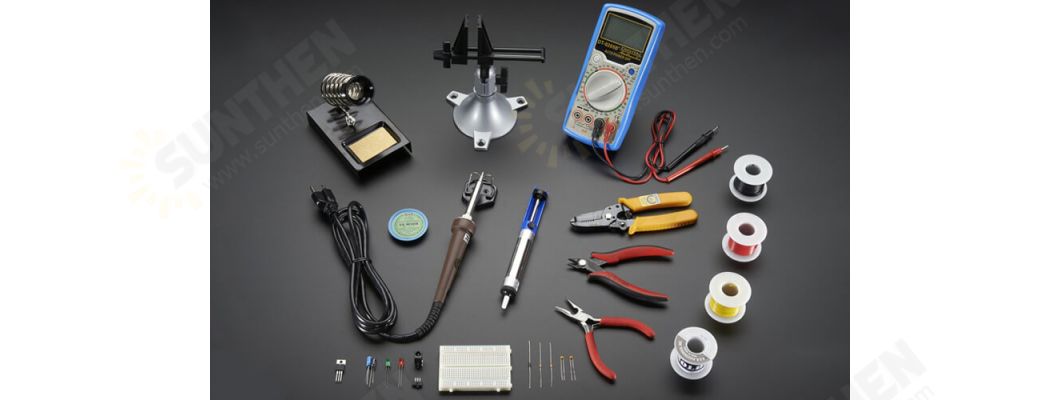
When soldering electronic components, it is important to use the proper tools and techniques to avoid damaging the delicate parts. A good quality soldering iron with a fine tip is essential for this type of work. Many soldering irons have adjustable temperature settings to allow you to solder at the correct temperature for your project.
In this article, we'll introduce you to the various types of electrical soldering tools available on the market so that you can choose the best one for your needs. We'll also provide some tips on how to successfully complete any soldering project.
Types of Electrical Soldering Tools
There are many different types of electrical soldering tools on the market, so it is important to choose the right one for your needs. Some factors to consider include the type of project you are working on, the size and shape of the area to be soldered, and the type of solder you prefer. Many solderers come with a variety of tips to accommodate different projects.
When soldering electronic components, it is important to use the proper tools and techniques to avoid damaging the delicate parts. A good quality soldering iron with a fine tip is essential for this type of work. Many soldering irons have adjustable temperature settings to allow you to solder at the correct temperature for your project.
If you are working on a larger project, such as soldering a joint in an electrical conduit, you will need a heavier-duty soldering iron. These irons have a thicker tip that can handle the higher temperatures and pressure required for this type of work.
When choosing a solder, it is important to select one that is compatible with the materials you are working with. Lead-based solder should not be used on aluminum or other metals that can be corroded by lead. Rosin-core solder is a good choice for most general-purpose soldering projects.
There are many different types of electrical soldering tools available, so it is important to choose the right one for your needs. Consider the type of project you are working on, the size and shape of the area to be soldered and the type of solder you prefer when making your selection. With the right tools and techniques, you can successfully complete any soldering project.
Tips for Successfully Completing Any Soldering Project
1. Use the proper tools and techniques to avoid damaging delicate parts.
2. Choose a solder that is compatible with the materials you are working with.
3. Follow the instructions for your particular soldering project.
4. Clean and inspect your work area before beginning any soldering project.
5. Use the correct amount of solder. Too much solder can cause problems, while too little will not provide a strong joint.
6. Heat the area to be soldered until the solder flows easily. Do not overheat the joint, as this can damage the components.
7. Allow the joint to cool completely before moving or handling it.
How to choose the right soldering tool depending on the project.
When choosing an electrical soldering tool, there are a few factors to consider in order to ensure you select the right one for your needs. The type of project you are working on will be the biggest determining factor in what kind of soldering tool you need. If you are working on a small, delicate project, then you will need a soldering tool with a very fine tip. Conversely, if you are working on a larger project, then you will need a soldering tool with a broader, flatter tip.
The size and shape of the area to be soldered is also important to consider. If you are soldering a small, cramped area, then you will need a soldering tool with a very narrow tip. On the other hand, if you are soldering a large, flat area, then you will need a soldering tool with a broader tip.
Finally, the type of solder you prefer will also play a role in determining the best electrical soldering tool for your needs. If you prefer a lead-free solder, then you will need a soldering tool that is compatible with that type of solder. Conversely, if you prefer a lead-based solder, then you will need a soldering tool that can accommodate that type of solder.
With all of these factors in mind, it should be relatively easy to choose the right electrical soldering tool for your needs. Just make sure to take into account the type of project you are working on, the size and shape of the area to be soldered, and the type of solder you prefer. With a little bit of planning, you should be able to find the perfect soldering tool for your next project.
Conclusion
There are a few factors to consider when choosing an electrical soldering tool. The type of project you are working on, the size and shape of the area to be soldered, and the type of solder you prefer will all play a role in determining the best soldering tool for your needs. With a little bit of planning, you can easily find the right soldering tool for your next project.
If you follow these tips, you can ensure that your next soldering project is a success. With the right tools and techniques, you can create strong, durable joints that will last for years. So don't wait any longer, get started on your next project today!

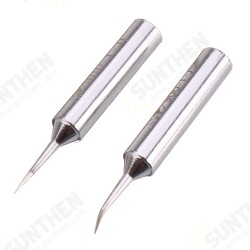
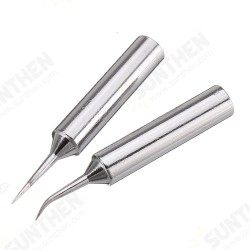
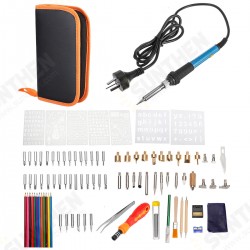
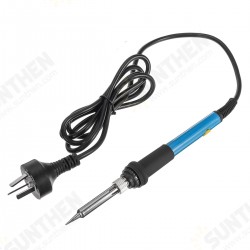
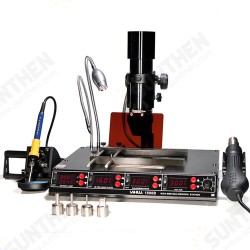
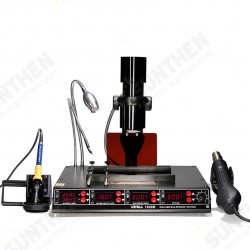
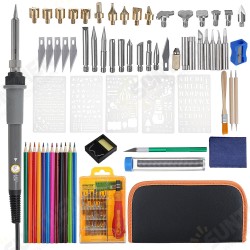
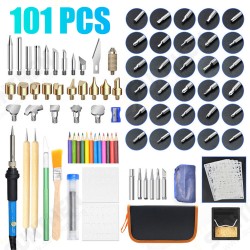
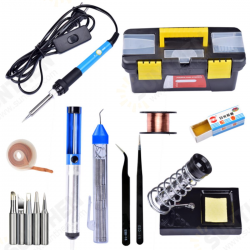
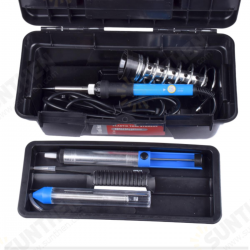
1 Comment(s)
This really simplified things. It made the topic easier to understand.
Leave a Comment